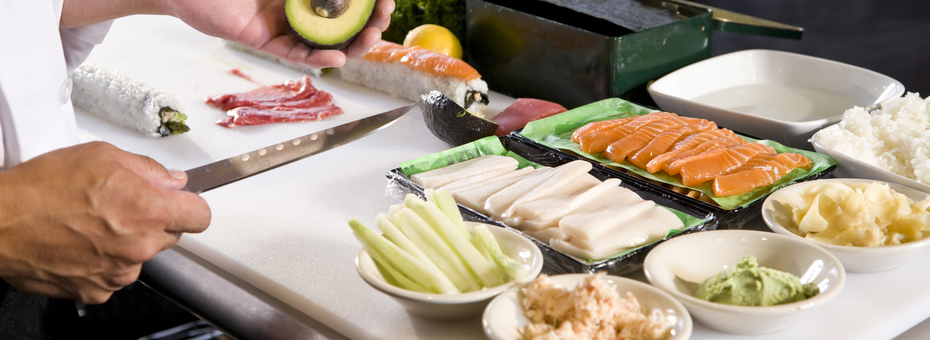Every once in a while (over the course of several centuries) we hear luminaries of all sorts write about lean thinking in the kitchen.
In the 13th century Buddhist teacher Dogen Zenji wrote a book called Instructions for the Zen Cook. This was followed by a modern day book by Bernie Glassman called Instructions to the Cook written in the latter part of the 20th century. And every so often we hear a story about the French phrase/idea mise-en-place like this one from NPR, which is totally aligned with lean concept of 5s (in the kitchen or anywhere else).
Interestingly, before Bernie became a Zen Master he was an aeronautical engineer at McDonnell-Douglas where he was likely exposed to Lean. During his early as a Zen master he founded the Greyston Bakery to help bring awareness to homelessness in Yonkers, New York. It was at the bakery where he applied the principle JIT (Just-in-Time) to deliver brownies to Ben & Jerry’s for several of their ice cream products in the late 80s. Pretty cool stuff.
Taking a closer look at Dogen’s book 7 centuries earlier, some of his instructions for the cook easily link to the practice of 5S.
On preparing a meal:
“Put those things that naturally go on a high place onto a high place, and those things that would be most stable on a low place onto a low place; things that naturally belong on a high place settle best on a high place, while those which belong on a low place find their greatest stability there. Clean the chopsticks, ladles and all other utensils; handle them with equal care and awareness, putting everything back where it naturally belongs. Keep your mind on your work and do not throw things around carelessly.”
Wow. 5S 700 years before it’s time…
And speaking of time, what does this brief history lesson have to do with showing up on time? I recently came across an interview in Men’s Journal with chef/author/TV personality Anthony Bourdain where he spoke about the importance of punctuality. This reminded me of the notion of respect in Michael and Freddy Balle’s book Lead With Respect. In the interview, Bourdain is asked. “What’s the best advice you ever received from anyone?” His answer:
“Show up on time… It is the basis of everything. I make all my major decisions on other people based on that. Give the people you work with or deal with or have relationships with the respect to show up at the time you said you were going to. And by that I mean, every day, always and forever. Always be on time. It is a simple demonstration of discipline, good work habits, and most importantly respect for other people. As an employee, it was a hugely important expression of respect, and as an employer, I quickly came to understand that there are two types of people in this world: There are the type of people who are going to live up to what they said they were going to do yesterday, and then there are people who are full of shit.”
I couldn’t agree more, but I would take Bourdain’s advice a step further. Showing up on time also applies to on time shipments and deliveries, on time inventory control and in my world, digital marketing personalization, on time messaging, on and on. Serving the right message to the right customer at the right time is a sign of respect for the customer (and the worker) built directly into the process.
As quality consultant John Guaspari says, “Quality is the answer to what, time is the answer to how, and customer is the answer to why.” Based on Bourdain’s advice I think he would agree that showing up on time is not only a sign or measure of respect, but it also has a direct impact on quality and customer satisfaction.
Whether the instructions are to, for, or from a cook, lean thinking is a key ingredient in the kitchen. The same is true for the factory, office, or everyday life. It’s also just sound and ultimately, respectful advice.





